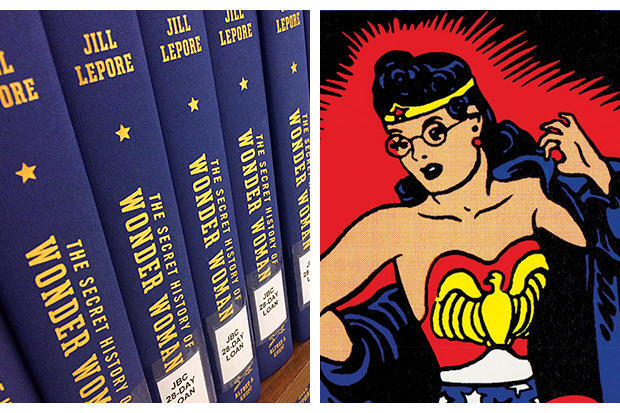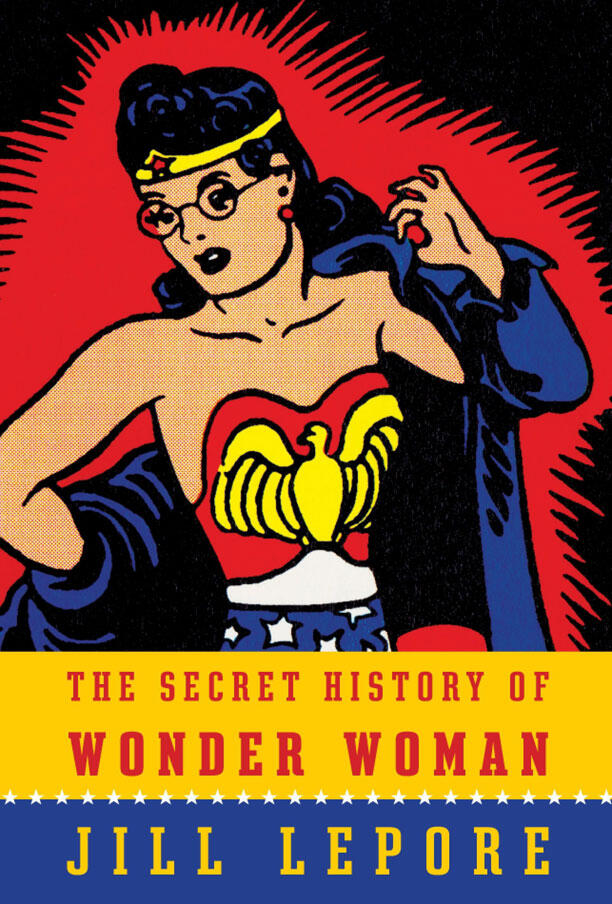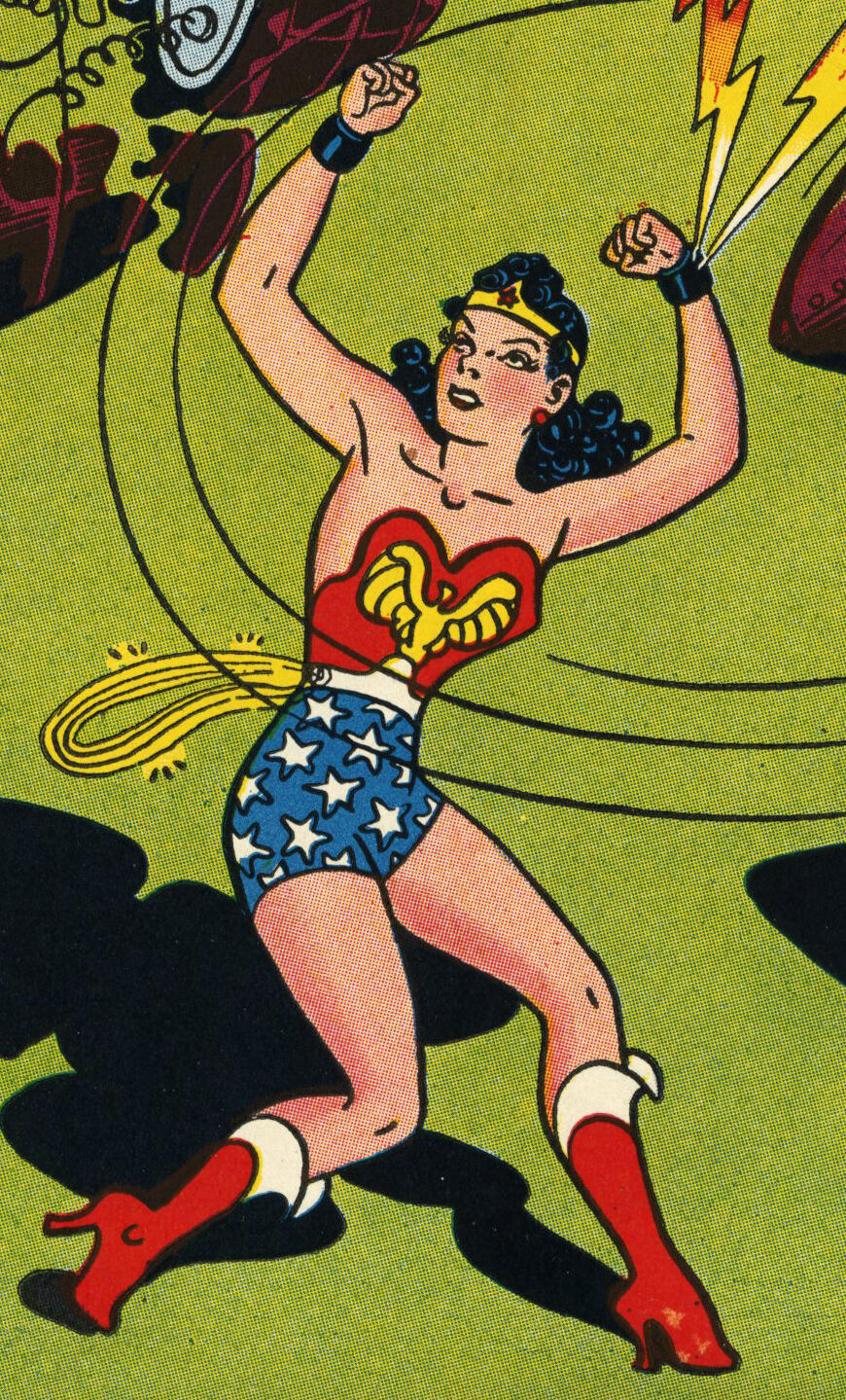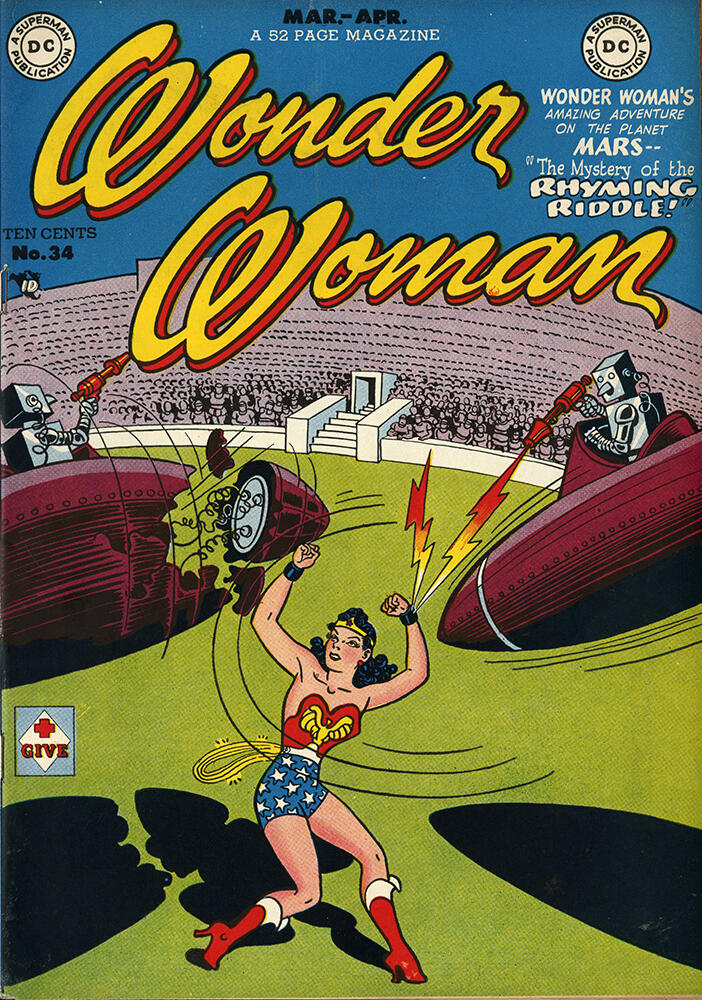
Aug. 13, 2015
On the same page: VCU’s inaugural Common Book — ‘The Secret History of Wonder Woman’ — is bringing the university community together in academic exchange
Share this story
This summer, thousands of incoming Virginia Commonwealth University students are reading “The Secret History of Wonder Woman,” a 2014 book that tells the story of the creation of the superhero and feminist icon Wonder Woman, while also digging into such myriad topics as psychology, medicine, the American family, Planned Parenthood, the women’s suffrage movement, comic book culture, Hollywood and much more.

The book, by Jill Lepore, Ph.D., a professor of American history at Harvard University and a staff writer at The New Yorker, is VCU’s inaugural Common Book, and the entire university community will be invited to read it and attend conversations, events and other learning opportunities surrounding the book throughout the 2015-16 academic year.
The VCU Common Book Program is an expansion of the university’s Summer Reading Program, which was launched in 2006 and required all incoming first-year students to read a particular book before arriving at VCU in the fall. Now, all VCU students, faculty and staff are being encouraged to take part.
“By changing the name from Summer Reading to Common Book, we’re trying to change the length of time we engage and the scope of engagement. Now it’s all year, and now it’s everyone at the university,” said Gardner Campbell, Ph.D., VCU’s vice provost for learning innovation and student success. “The objective, at its heart, is to have everyone be part of a vital academic conversation at VCU.”
While the entire VCU community is being encouraged to participate, first-year students are getting the “first crack” at the book this summer, positioning them to be leaders in the campuswide conversation throughout the coming year.
“In some respects, it’s about first-year students having a bigger area of responsibility and opportunity, and in other respects it’s about using the Common Book to work toward our goal of ‘one university,’ Campbell said. “It’s about emphasizing the intellectual diversity and interdisciplinarity of the work we do here at VCU.”
This summer, all first-year students are receiving copies of “The Secret History of Wonder Woman” at new student orientation.
Campbell is presenting the book to the incoming students, as are Danielle M. Dick, Ph.D., a professor in the departments of Psychology, African American Studies and Human and Molecular Genetics, and Jeff South, a journalism professor in the Richard T. Robertson School and Media and Culture in the College of Humanities and Sciences. The Common Book Program is part of VCU’s Quality Enhancement Plan, of which Campbell is executive director and South and Dick are co-directors.
I think [the Common Book Program] is an exciting opportunity to have the university unite around a shared, fun, informal academic exchange. The ability to have these kinds of experiences is one of the great parts of being at a university.
“I think [the Common Book Program] is an exciting opportunity to have the university unite around a shared, fun, informal academic exchange,” Dick said. “The ability to have these kinds of experiences is one of the great parts of being at a university.”
She added that the incoming students are giving “The Secret History of Wonder Woman” a warm reception.
“Students are excited about it,” she said. “I tell them that they will never look at Wonder Woman’s bracelets again the same way after reading this book.”
Origin of a superhero
“The Secret History of Wonder Woman” was the top pick by the Common Book Selection Committee, which makes recommendations to VCU Provost Gail Hackett, Ph.D., for each year’s book.
Karen Rader, Ph.D., director of VCU’s Science, Technology & Society Program and a professor in the Department of History, was an early champion of the book.
The book, she said, hits a “sweet spot” for a wide range of interests among VCU students and faculty.
“Lepore’s strategy of telling a dual biography of [Wonder Woman creator] William Moulton Marston, a historically neglected American psychologist, and of Wonder Woman, a beloved comic book character, reveals just the kind of interesting and unexpected connections that we should expect from good narrative history,” Rader said.

“Who would have thought that a female superhero who became an icon of strength for 1970s-era feminists could have sprung from the mind of a failed male academic who invented the lie detector and yet whose own life alternately embraced deception, female empowerment and then-radical — if not always beneficial to women — domestic arrangements?” she added.
The book tells the intriguing but little-known story behind Wonder Woman’s creation in 1941.
“In many ways, it’s a wonderful parallel for what we want students to do when they come to college: Think about things in new and different ways, and dig deep into topics they may not have thought very deeply about before — or even realized they had never thought very deeply about before,” Dick said. “The book has so many interesting themes, and touches on the connections between so many aspects of our lives and our world; we hope that everyone will find something of interest to them in this book and be inspired to learn more about the parts that excite them.”
South added that the book contains themes that are relevant to everyone across both of VCU’s campuses.
“No matter what your major or academic discipline, you’ll find interesting threads in ‘The Secret History of Wonder Woman,’” he said. “It’s about gender, gender stereotypes, feminism and women’s rights. It’s about the economy: The book describes an episode in the Wonder Woman comics in which our superhero leads a strike for higher pay. It’s about politics and censorship: There was a movement to ban certain comics, just as today some people would like to ban certain video games. This book is about science: William Marston, who created Wonder Woman, also invented the lie detector. And it’s about psychology: After inventing the lie detector, Marston proceeded to tell an outrageous lie about himself. The book is also about sex, but I am not going to be a spoiler.”
Ties to VCU’s Comic Arts Collection
The book is not only richly interdisciplinary and a great example of how to conduct research, but it also complements VCU Libraries’ nationally recognized Comic Arts Collection, which includes more than 50,000 comic books and related material, including a massive trove of Wonder Woman comics spanning 70 years of the superhero’s history and illustrating her evolution as a cultural icon.

“‘The Secret History of Wonder Woman’ ties right into our extensive comic arts research collection covering a wide range of topics related to comics scholarship, history, artwork and criticism,” said Yuki Hibben, assistant head of VCU Libraries’ Special Collections and Archives. “The book will be valuable for researchers of comic arts, as well as students and scholars of history, gender studies and women’s rights.”
Cindy Jackson, VCU Libraries’ library specialist for comic arts, called the book a “a well-researched and refreshingly modernist take on the origins of the most popular female superhero of all time.”
“It is a history that has often been censored or altered in the past because the real story of creator William Moulton Marston was too sensational to be believed,” she said. “Jill Lepore did not shy away from Wonder Woman’s controversial beginnings and brought to light an important link between the comic and the women’s rights movement.”
VCU Libraries has put together an online gallery, “History in Your Hands: Wonder Woman Edition,” that connects researchers with both the library’s comic arts and women’s history collections.
“The Common Book ties into Special Collections and Archives’ strong focus on women’s history,” Hibben said. “Both the creator and first illustrator of Wonder Woman were strong advocates for suffrage and feminism, and Wonder Woman was born from their beliefs. Students, faculty and other researchers interested in this aspect of Wonder Woman can access rare books, journals and archival collections such as the records of the Equal Suffrage League of Virginia and the papers of Richmond suffragist, Adèle Goodman Clark.”
The Comic Arts Collection is open to visitors and researchers from the VCU community and beyond, and copies of “The Secret History of Wonder Woman” are available from both Cabell Library on the Monroe Park Campus and Tompkins-McCaw Library on the MCV Campus.
Subscribe to the weekly VCU News email newsletter at http://newsletter.news.vcu.edu/ and receive a selection of stories, videos, photos, news clips and event listings in your inbox every Thursday.
Subscribe to VCU News
Subscribe to VCU News at newsletter.vcu.edu and receive a selection of stories, videos, photos, news clips and event listings in your inbox.








